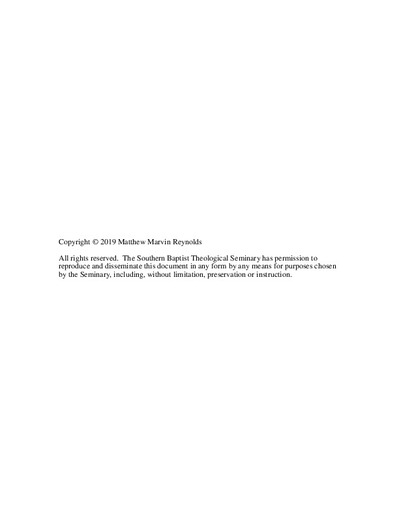| dc.description.abstract | This dissertation answers the following primary research question: to what degree and to what extent did Ward’s spirituality promote peace within the Serampore Trio and preserve the Mission as a whole? In answering this question, it examines William Ward’s spirituality and shows that its essence lay in an experiential, affectionate piety, grounded in evangelical Calvinism and expressed in love to God and man. Ward’s piety affected his attitudes toward and relationships with others, both within and without his Particular Baptist denomination, resulting in a warm ecumenism. It also had a conciliatory and peacemaking effect within the Trio and beyond.
Chapter 1 briefly introduces William Ward as the lesser known, softer spoken member of the famed Serampore Trio who was loved by all who knew him and remembered for his warm piety and amiable character. In spite of his significant contribution to the Serampore Mission, Ward has been largely ignored at the popular and scholarly level, but his legacy is worthy of rediscovery.
Chapter 2 gives a fuller introduction to the life and times of William Ward, beginning with his non-Baptist religious upbringing and his subsequent work as a printer leading up to his calling into ministry, commissioning as missionary with the Particular Baptist Missionary Society, and subsequent career in Serampore which included many vital mission roles beyond his well known role as printer.
Chapter 3 probes Ward’s spirituality. First, the theological context from which Ward’s spirituality springs is considered, with attention given to developments within the Particular Baptists that gave rise to the formation of the Particular Baptist Missionary Society and to the broader evangelical Calvinistic ecumenism at the close of eighteenth-century England. Second, the key themes of Ward’s spirituality are explored, viz., love, humility, prayer, and usefulness.
Chapter 4 explores the impact of Ward’s spirituality in his relationships. Amongst the Trio, Ward’s irenic influence was instrumental in times of agreement and disagreement. And with non-Baptist brothers, Ward’s warmth promoted fellowship, partnership, and prayer.
Chapter 5 examines Ward’s counsel during certain critical junctures in the life of the Serampore Mission. When Ward’s colleagues heeded his counsel, the Mission benefitted greatly. But when they did not, the cost was significant.
Chapter 6 concludes by summarizing the primary research question and answers provided. It also answers the question as to whether William Ward’s frequent willingness to acquiesce constituted a compromise of his faith. Lastly, Ward’s lasting legacy and contribution are considered. | en_US |

